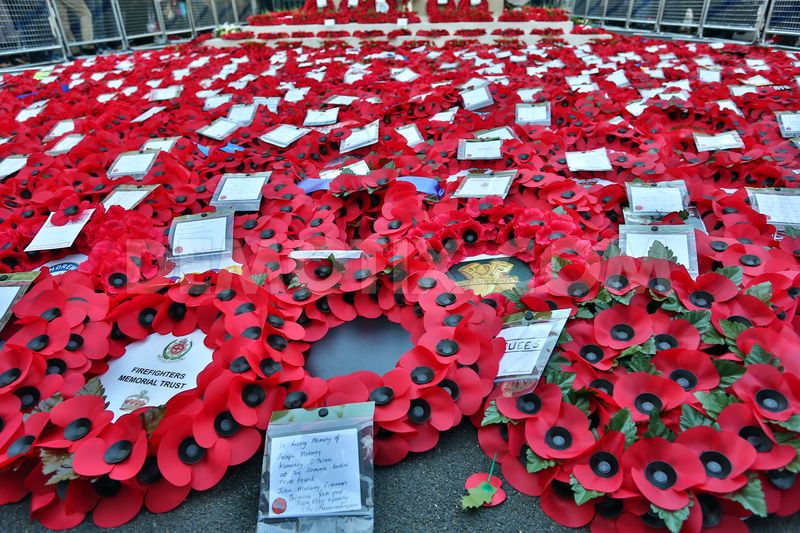
It is not about the First World War – despite still being tied to the eleventh minute of the eleventh hour of the eleventh day of the eleventh month, it has lost its original, unique correspondence to that conflict. And it is not necessarily even about remembering fallen soldiers, either – whatever the rights and wrongs of commemorating warfare in this way, I am not trying to get into a discussion here on whether Remembrance Day should take place at all in a more general sense.
Remembrance Day is primarily about Britain. To be more precise, it is about Britain’s antiquated (or very current, depending on how you look at things) sense of empire. The objections to Britain’s neo-colonialist urges, as expressed in the recent conflicts in Iraq and Afghanistan, are equally valid when it comes to the way in which Britain remembers the First World War today. In referring to Afghanistan in the same breath as the First World War, Cameron made explicit that which was already implicitly known: Remembrance Day is about empire, and, to a lesser extent, about monarchy, the symbolic head of the empire – two concepts which, to a large degree, come as a pair. The Queen, of course, takes pride of place in Britain’s Remembrance Day, the literal incarnation of the traditional British values being celebrated there. But what does Britain stand for? The answer to that question would probably be a very different one in this country than in Britain, and it is in this context that we must rethink how Ireland itself handles Remembrance Day, which means negotiating the difficult relationship with Britain.
For Britain, Remembrance Day is all about remembering “the good old days”, turning back the clock to the era of the First World War when Britain was a world power; in this context the ambiguity surrounding the term “The Great War” becomes all the more significant. There is a nagging sense that, somewhere beneath the layers of pomp and ceremony, the core of Remembrance Day has shifted from mourning loss of life to nostalgia for imperialistic grandeur. From respecting the deaths of many British soldiers, Remembrance Day now serves to arm the British Armed Forces with an infallibility which brushes under the carpet its role in imperialistic expansion and brutality, silencing those dissenters who refuse to submit to revisionism. The objection of James McClean, a Championship football player from Derry, to wearing the apparently obligatory poppy during this weekend’s fixtures revealed the jingoistic, knee-jerk response to any sort of deviation from the party line, despite his eloquent and well-reasoned explanation that the uncomfortable extolling of the British Army did not sit well with him on a personal level.
All of which begs the question of what form Ireland’s involvement in the act of collective remembrance should take. The Taoiseach attended a Remembrance ceremony in Enniskillen, while the Tánaiste attended a ceremony in St. Patrick’s Cathedral. Yet this was the first year since the establishment of the Republic that the Irish Ambassador to the United Kingdom took part in a Remembrance Sunday ceremony, generally regarded by the media as another step along the reconciliatory trajectory which Britain and Ireland have been following in recent years. The fact that the ceremony attended by the Irish Ambassador in London was headed by the Queen, and saw a procession of representatives from Commonwealth countries lay wreathes (it should be noted that the ambassador himself laid a laurel, and not a poppy, wreath), underlines the imperialist overtones of Remembrance Sunday. However, whilst the Taoiseach and the Irish Ambassador to the U.K. were careful to be seen joining together with Britain on Remembrance Sunday, President Michael D. Higgins, drawing parallels between Ireland and Africa during an address in Ethiopia on Wednesday, had underlined how Ireland had “experienced the scourges of colonialism and hunger”.
This is not necessarily to suggest that there was anything particularly pointed in the timing of the President’s remarks, but they do serve as a timely reminder that in this country we should think very carefully about the real meaning of Remembrance Day. Having grown up in London, with an English dad and Irish mum, I always found uncomfortable the glorification of the twin concepts of empire and monarchy, inherently tied to the 11th November in Britain. And for me, the real meaning of Remembrance Day has always had much more to do with those concepts than anything else. It goes without saying that I am fully behind reconciliation between the two countries (how can you not be, walking around Dublin with an English accent?) but this does not mean that Ireland should take part in honouring the British empire.
The tragedy of those who died in the First World War – as many as 50,000 of them Irish – should have nothing to do with the glorification of an army, or a country, or with its colonial nostalgia.






